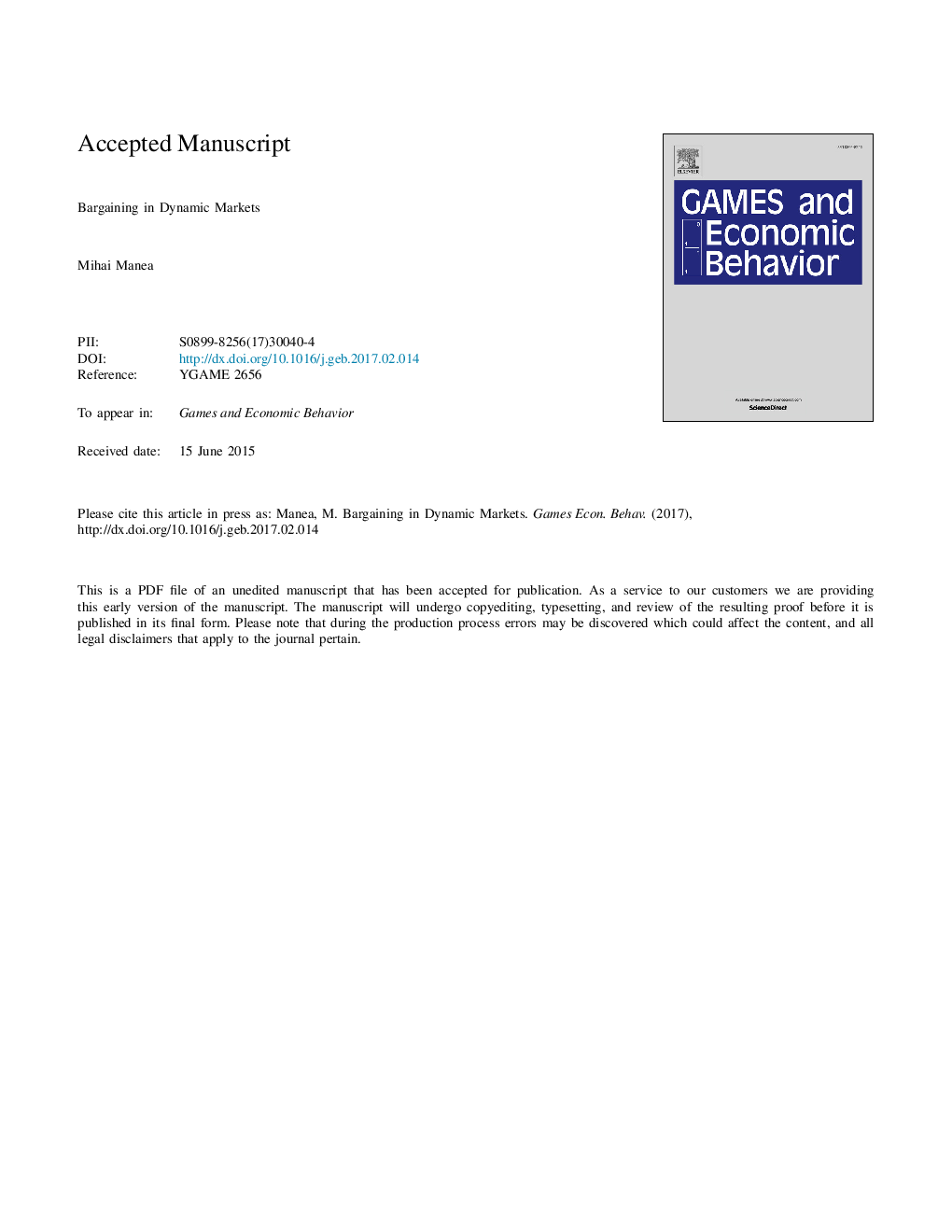| Article ID | Journal | Published Year | Pages | File Type |
|---|---|---|---|---|
| 5071324 | Games and Economic Behavior | 2017 | 35 Pages |
Abstract
We study non-stationary markets in which traders are randomly matched to bargain over the price of a heterogeneous good or the terms of a partnership. The economy consists of a continuum of players drawn from a finite set of types. Players exogenously enter the market over time and exit upon trading. At every date, matching probabilities for each pair of types are determined by the endogenous distribution of trader types in the market. The balance of bargaining power at any stage depends on variations in potential gains from trade, the inflows of new traders, the structure of agreements at future dates, and the induced frequency of trading opportunities. We establish that an equilibrium always exists. Moreover, all equilibria that lead to the same evolution of the economy are payoff equivalent. However, we show that multiple self-fulfilling expectations about the trajectory of the economy, generating distinct equilibrium dynamics and payoffs, may coexist.
Related Topics
Social Sciences and Humanities
Economics, Econometrics and Finance
Economics and Econometrics
Authors
Mihai Manea,
